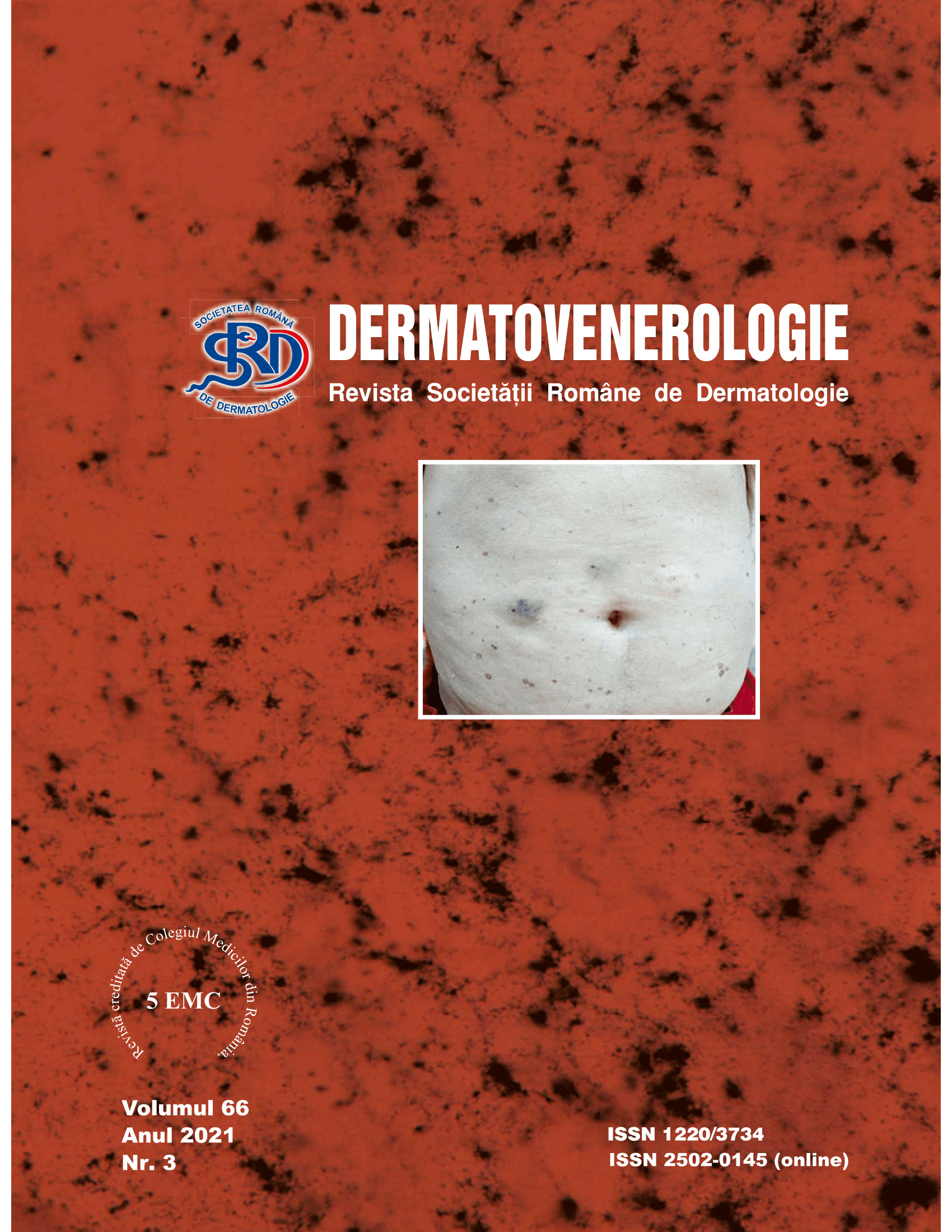Summary
Introduction: Immune checkpoint inhibitors (anti-CTLA-4, anti-PD-1, anti-PD-L1 monoclonal antibodies) represent a new class of medication in cancer therapy. The toxicity of immune checkpoint inhibitors is primarily immunologically mediated by the reactivation and proliferation of induced T lymphocytes. However, the incidence of these reactions varies depending on the monoclonal antibody used, being similar for each molecule. These side effects can theoretically affect all organs as a whole.
Clinical case: We present the case of 62 year old patient with metastatic melanoma with left axillary and inferior paratracheal lymphadenopathy which are metabolically active. The patient was treated with intravenous pembrolizumab. The treatment was not followed by the appearance of toxicity except for the appearance of vitiligo on the scalp.
Discussion: Dermatological toxicity occurs with both anti-PD-1 (nivolumab, pembrolizumab) and anti-CTLA-4 (ipilimumab) treatments regardless of the type of tumor treated [1-6]. The most common skin conditions are rash, maculopapular rash, pruritus and vitiligo.


